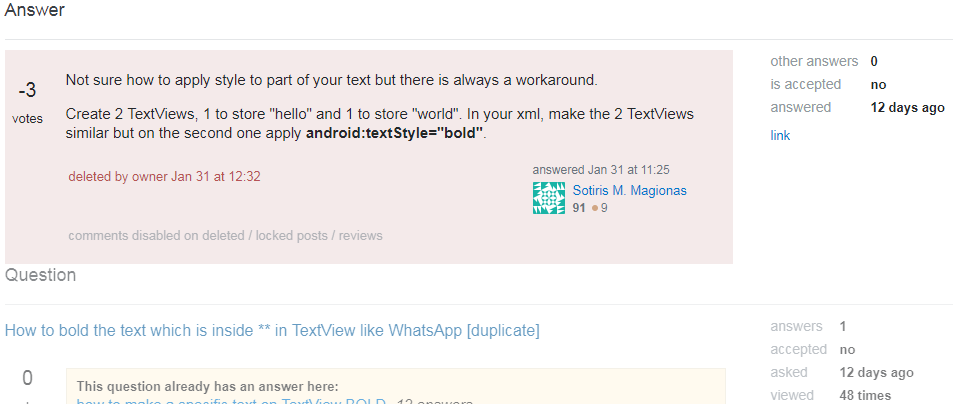I just received this audit in the Low quality posts:
I noticed that it looked like an audit, so I double-checked the question and saw that the answer was already deleted. So yes, that's an audit, easy peasy, I passed it.
However, if that wasn't an audit but an actual review, I would have chosen the Looks OK option. It may not be a great answer, but it's still an attempt to solve the issue asked... that's what downvotes are for; not deletion. Am I right, or did I overlook something?
The answer had -3 score, somebody probably flagged it as Not an answer... and the author decided to remove it due to the -3 (which probably auto-accepted the NAA flags?). Still... I don't think that's an answer which merits deletion - unless the author decides so. Posts removed by their own author shouldn't be used as audits. It's not like we don't have any other deleted garbage to show in the audits...
I am aware of this almost exact question, however, in that case, the answer had a SPAM flag too... which I don't think is the case here (the answer doesn't even include any links). But anyway, I wouldn't have chosen that post for a review, either.
